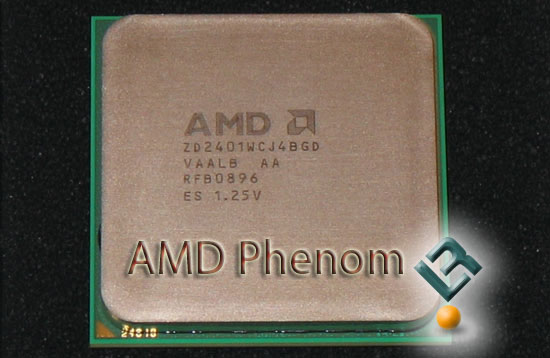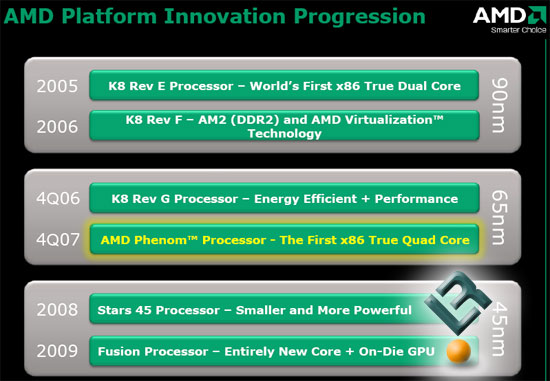Final Thoughts and Conclusions

When I wrote my editorial titled "Is AMD Really a Sinking Ship?" it concluded by saying - "They [AMD] just need to make sure they get out their next generation of processors and chipsets out on time. AMD has been delayed getting numerous products out the door as scheduled and that is without a doubt hurting them". It looks like another delay happened and that is not what AMD needs to happen right now. Their new Phenom processors do not perform clock to clock to Intel's latest offerings, so this delay puts AMD even further behind Intel. We were able to overclock the 2.6Ghz Phenom 9900 to 3.06Ghz and even at 3GHz it didn't pose a threat to really any of the Intel processors, so the only way AMD is going to be able to compete with Intel is by lowering prices once again and pitching the whole platform and not just the processor.
The spider platform looks good overall if you ignore some bugs they have right now. The AMD OverDrive utility will eventually make monitoring the system and overclocking easy, but we found that OverDrive locked up the ASUS 790FX motherboard as the BIOS wasn't ready. You might have also noticed that the Sisoft Sandra XII memory bandwidth scores were low and that again is due to some BIOS tweaks that need to be done to ganging and unganging. If that isn't enough rumors have popped up that there is an issue with the TLB in Phenom. The Translation Look-aside Buffer, is a table in the processorí»s memory that contains information about the pages in memory the processor has accessed recently. The table cross-references a programí»s virtual addresses with the corresponding absolute addresses in physical memory that the program has most recently used. The TLB enables faster computing because it allows the address processing to take place independent of the normal address-translation pipeline, but something isn't exactly right and in very rare occasions bandwidth intensive workloads can cause a system hang. AMD said that this issue is extremely rare and that a BIOS update should do the trick, so no re-spins or anything like that are needed.
For a reviewer I'm a bit stuck here, because we don't have 9900 processor in-house for testing and the processor we did have had a number of issues that added up. On the positive side of the fence AMD OverDrive was neat and will be an interesting application to see grow. Overclocking the Phenom was promising as 3GHz was reached easily on air. With water cooling to tame the 140W Phenom 9900 processor, we should be able to get better performance, so we can't wait to get one here.

Many of our readers might think that the AMD Phenom processor series is late and doesn't bring enough performance to the table and I have to agree with you. AMD needed to have this part out months ago and at 2.6GHz or higher. Hopefully, AMD can get these early BIOS bugs worked out, but in reality, they shouldn't be early bugs. Phenom has been delayed and the quad-core Barcelona server parts have been out for some time now. I'm frustrated with this launch as I am sure you are. Intel needs competition and AMD hasn't bucked up and brought it to the table with their first true quad-core processor. The ATI Radeon 3800 series on the other hand offers amazing price versus performance value and killer features for a low price. The AMD roadmap shows their next new processor series will be the Stars 45 Processor, which will be AMD's move to the 45nm process. All you die hard AMD fans can keep your hopes up that the move to 45nm will go as good, if not better, than what Intel did at 45nm.
In closing, the AMD Phenom Processor 9600 (2.3GHz) and 9500 (2.2GHz) are now available for $283 and $251 respectively in 1,000-unit pricing and that is good because the prices are lowering that what Intel has to offer in the quad-core processor market.
Legit Bottom Line: AMD's Phenom Processor falls short of expectations and needs to have the bugs worked out with higher clock frequencies.
Questions or Comments? View this thread in our forums!

